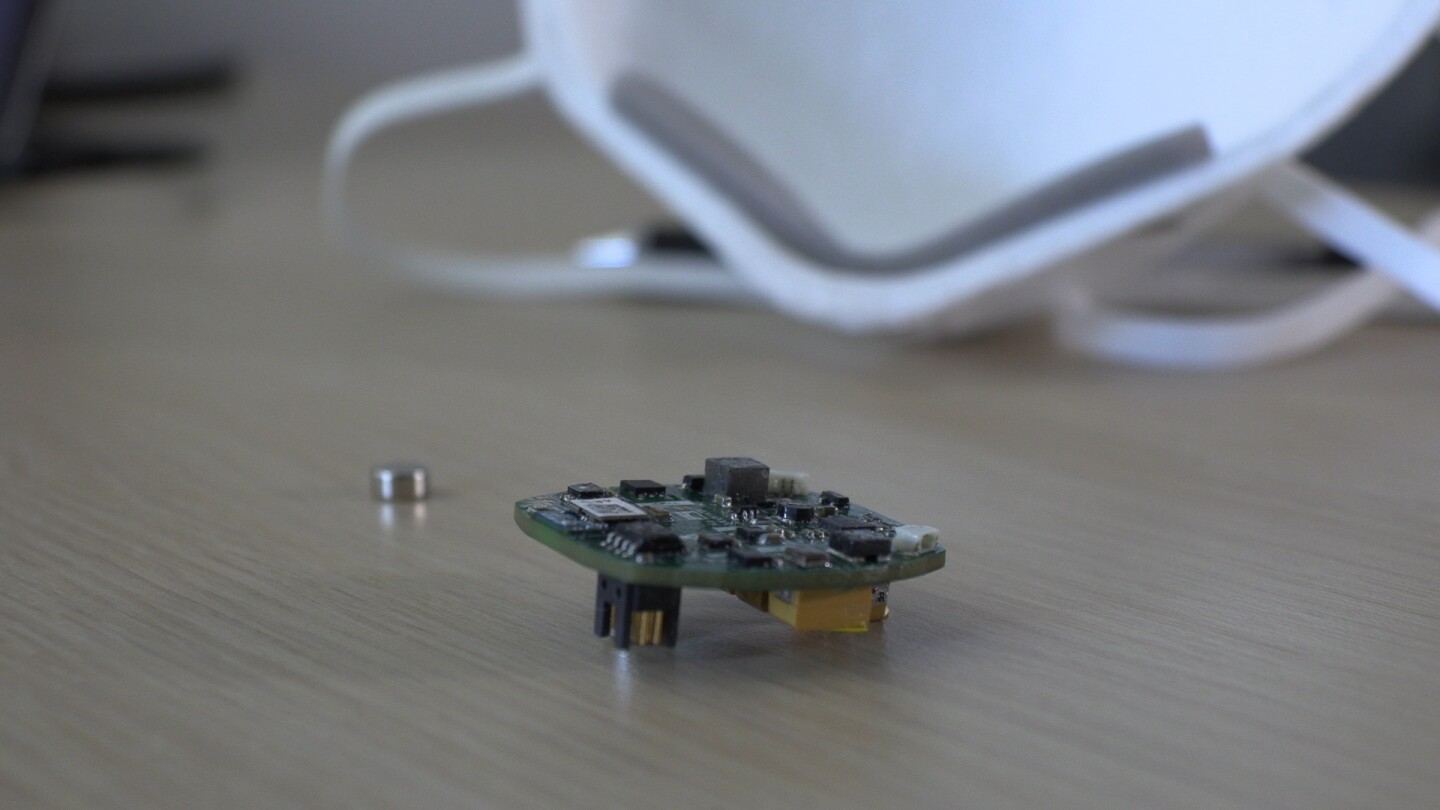People such as healthcare workers often have to wear face masks for up to 12 continuous hours, during which time they may become seriously exhausted. A new mask-mounted device is designed to help, by monitoring their vital signs and detecting leaks in the mask’s seal.
Currently in development at Illinois’ Northwestern University, the prototype gadget is known as the FaceBit, as it’s described as being like a Fitbit for the face.
It’s about the size of a US quarter-dollar coin, and attaches to the inside of any type of mask – N95, cloth or surgical – via a small magnet. And while it’s powered by a battery, that battery is augmented by onboard systems which harvest energy from motion, light, plus the heat and force of the wearer’s breaths.
As a result, one battery is able to last over 11 days between charges. It is hoped that once the energy-harvesting systems are developed further, the device won’t require a battery at all.

Northwestern University
Because the FaceBit can detect the force of individual breaths, it is therefore able to calculate the wearer’s rate of respiration. Additionally, by detecting the tiny head movements which accompany each heartbeat – and by telling the difference between them and other body movements – it can ascertain the user’s heart rate. And finally, if it detects a sudden drop in how resistant the mask is to releasing exhaled air, it knows that the seal between the mask and the wearer’s skin may be compromised.
All of this data is transmitted via Bluetooth to an accompanying smartphone app, which warns the user if they’re becoming too stressed, too fatigued, or if their mask needs to be readjusted or replaced. The data could also be utilized by healthcare administrators, in order to monitor the wellbeing of their employees.
Although the FaceBit has already been tested in a real-world healthcare environment, the technology still needs to be validated via clinical trials. It has been released as an open-source system, so that other groups can help in its development.
“FaceBit provides a first step toward practical on-face sensing and inference, and provides a sustainable, convenient, comfortable option for general health monitoring for COVID-19 frontline workers and beyond,” says the lead scientist, Asst. Prof. Josiah Hester. “I’m really excited to hand this off to the research community to see what they can do with it.”
A paper on the study was recently published in the journal Proceedings of the ACM on Interactive, Mobile, Wearable and Ubiquitous Technologies.
Source: Northwestern University
Source of Article